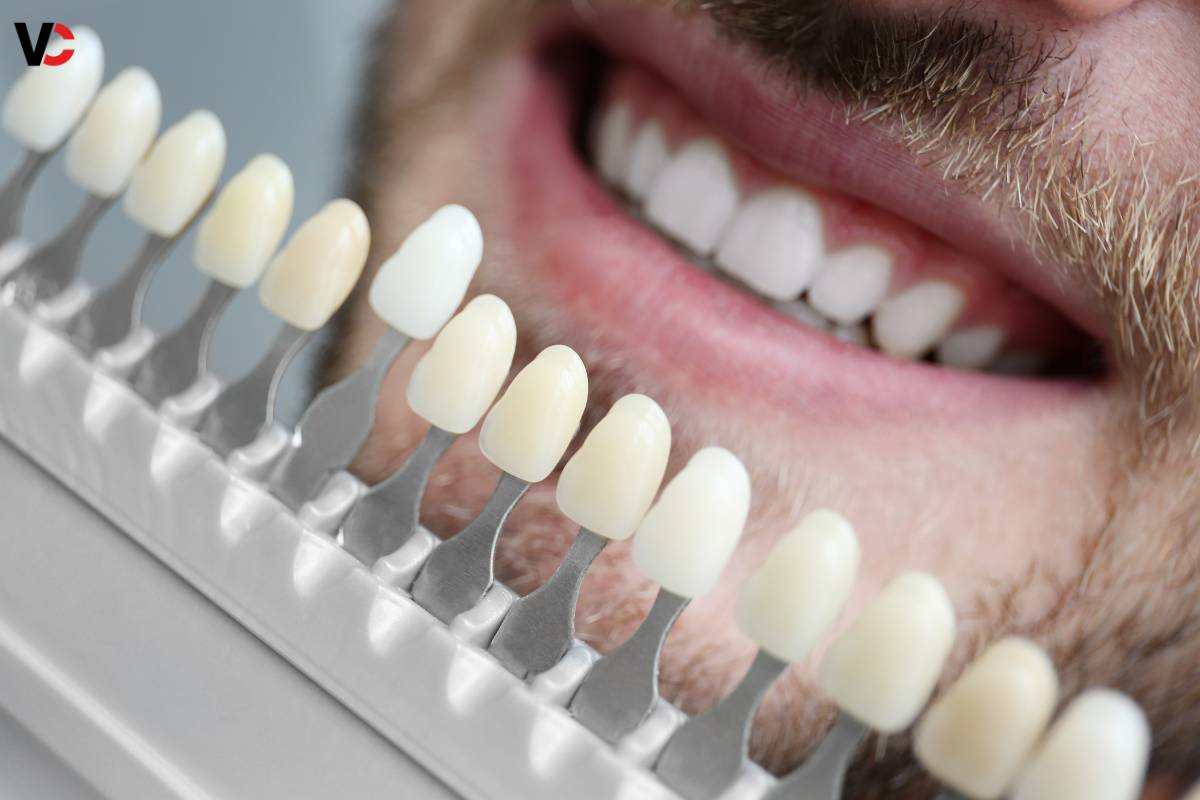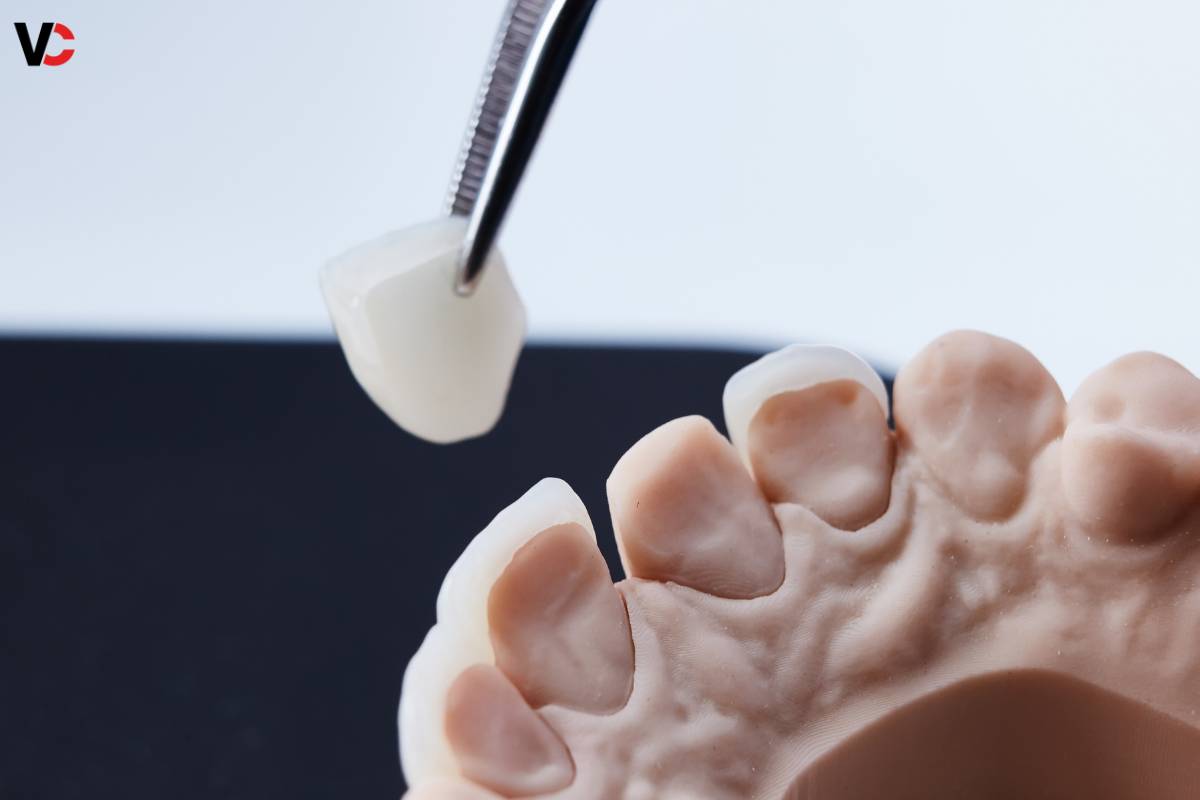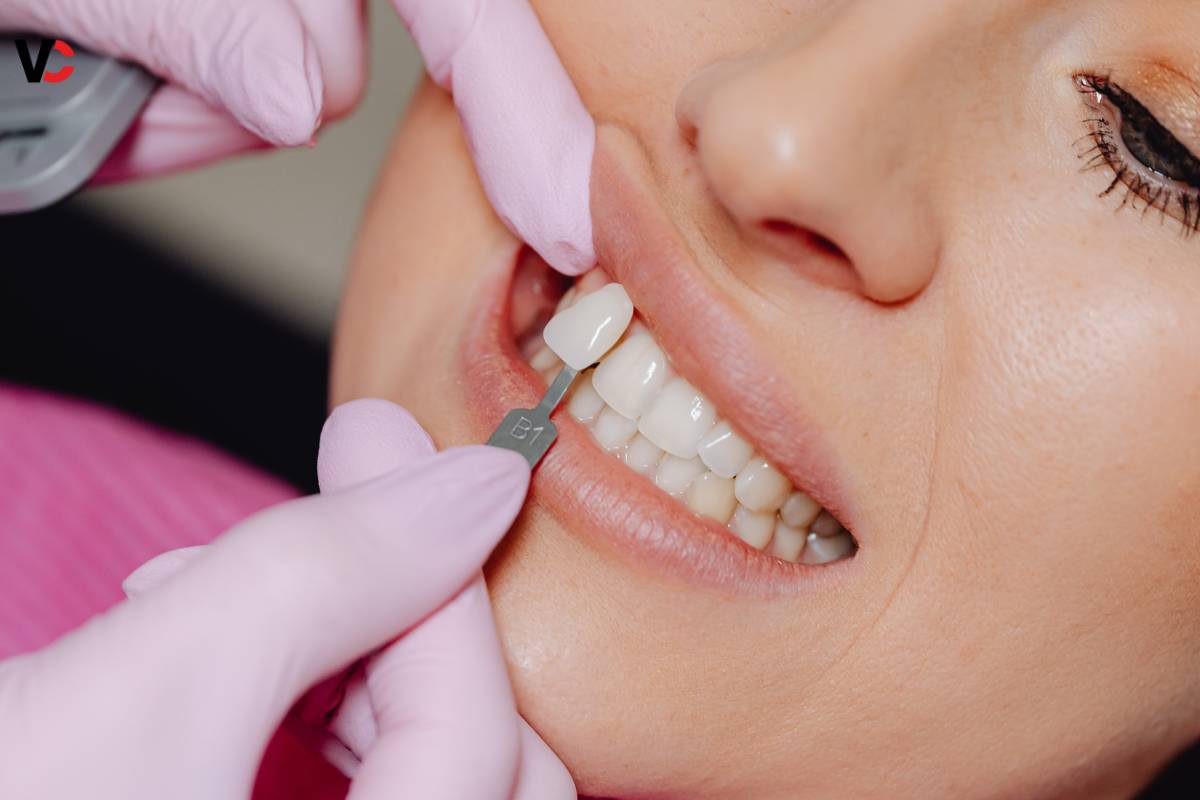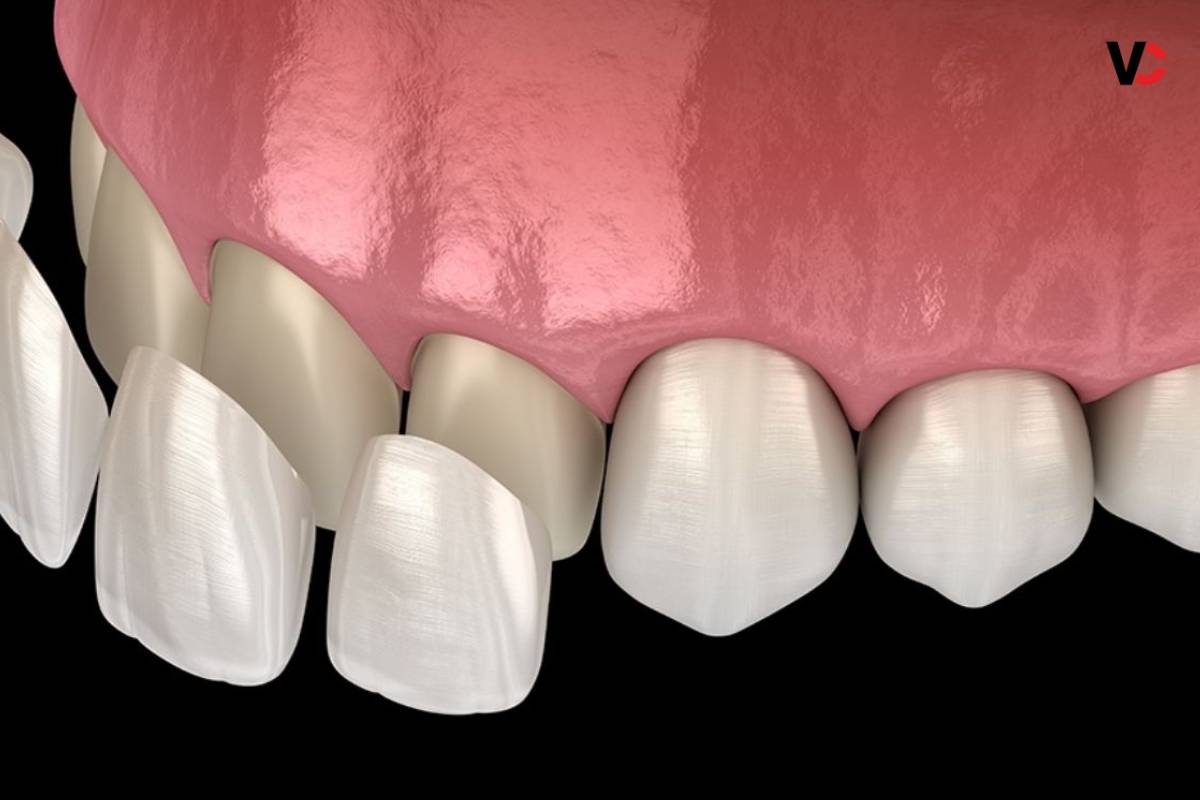In recent years, veneers have gained popularity as a cosmetic dental treatment option for enhancing the appearance of teeth. These thin, custom-made shells are designed to cover the front surface of teeth, improving their color, shape, size, or length. While veneers offer numerous benefits of veneers, they also come with their own set of considerations. In this comprehensive guide, we’ll explore the pros and cons of veneers to help you make an informed decision about whether this cosmetic dental procedure is right for you.
Pros of Veneers:
Veneers have revolutionized cosmetic dentistry by offering a versatile solution for enhancing the appearance of teeth. These thin shells, typically made of porcelain or composite resin, are custom-designed to cover the front surface of teeth, masking imperfections and creating a brighter, more uniform smile. The popularity of veneers stems from their ability to address a wide range of dental concerns, including discoloration, chips, cracks, gaps, and minor misalignment. Whether you’re looking to improve the aesthetics of your smile or boost your confidence, veneers offer numerous benefits that make them a popular choice among patients and dentists alike.
One of the primary benefits of veneers is their versatility in addressing cosmetic dental issues. Unlike traditional dental treatments that may require extensive procedures or multiple appointments, veneers can achieve dramatic results with minimal tooth preparation. Whether you have stained, misshapen, or damaged teeth, veneers can be customized to meet your specific needs and preferences, providing a natural-looking and long-lasting solution.
Additionally benefits of veneers, veneers offer a conservative approach to cosmetic dentistry, preserving more of the natural tooth structure compared to other procedures such as dental crowns or implants. This means that less enamel needs to be removed during the preparation process, resulting in a more conservative and minimally invasive treatment option. Furthermore, veneers are highly durable and resistant to staining, allowing patients to enjoy a beautiful and vibrant smile for years to come.
In this article, we will explore the numerous benefits of veneers in detail, highlighting their effectiveness in improving the aesthetics of your smile and enhancing your overall oral health and well-being. Whether you’re considering veneers for cosmetic reasons or to address specific dental concerns, understanding the pros of this popular dental treatment can help you make an informed decision about your oral care.
Here are 5 Benefits of Veneers:
1. Enhanced Aesthetic Appeal

One of the primary benefits of veneers is their ability to transform the appearance of teeth. Whether you’re looking to whiten stained teeth, correct minor alignment issues, or reshape damaged teeth, veneers can help you achieve a brighter, more symmetrical smile.
2. Natural Appearance
Veneers are custom-made to match the color and shape of your natural teeth, ensuring a seamless and natural-looking result. With modern dental technology, veneers can be crafted to mimic the translucency and texture of enamel, making them virtually indistinguishable from natural teeth.
3. Durable and Long-lasting
Veneers are made from high-quality materials such as porcelain or composite resin, which are known for their durability and longevity. When properly cared for, veneers can last for a decade or more, providing a long-term solution for improving the appearance of your smile.
4. Stain-resistant
Unlike natural teeth, which can become stained or discolored over time, veneers are resistant to staining from food, beverages, and tobacco products. This means that your veneers will maintain their bright, white appearance for years to come, giving you confidence in your smile.
5. Minimal Tooth Preparation
Unlike some dental procedures that require extensive tooth reshaping or removal, veneers typically require minimal tooth preparation. In most cases, only a small amount of enamel needs to be removed to accommodate the veneers, preserving the natural structure of your teeth.
Cons of Veneers:

1. Irreversible Procedure
One of the primary drawbacks of veneers is that the process is irreversible. Since a thin layer of enamel is removed from the teeth to accommodate the veneers, this alteration is permanent. Once you have veneers, you will need to maintain them or replace them as needed.
2. Potential for Sensitivity
Some individuals may experience temporary sensitivity or discomfort after getting veneers, especially if a significant amount of enamel is removed during the preparation process. While this sensitivity typically resolves on its own, it can be a concern for some patients.
3. Cost
The cost of veneers can vary depending on factors such as the material used, the number of veneers needed, and the geographic location of the dental practice. In general, veneers tend to be more expensive than other cosmetic dental procedures, making them a significant investment for some patients.
4. Risk of Damage
While veneers are durable, they are not indestructible. Accidental trauma or excessive force, such as biting down on hard objects or using teeth as tools, can potentially damage or dislodge veneers. It’s essential to practice good oral hygiene and avoid habits that could compromise the integrity of your veneers.
5. Maintenance Requirements

Although veneers are resistant to staining, they still require regular maintenance to keep them looking their best. This includes daily brushing and flossing, routine dental check-ups, and avoiding habits that could damage the veneers, such as chewing on ice or biting your nails.
Conclusion:
In conclusion, veneers offer numerous benefits for individuals seeking to enhance the appearance of their smile. From improved aesthetics to long-lasting durability, veneers can provide a solution for a variety of cosmetic dental concerns. However, it’s essential to weigh the benefits of veneers and cons of veneers carefully and consult with a qualified dentist to determine if this treatment option is right for you. By understanding the potential benefits and drawbacks of veneers, you can make an informed decision about your dental care and achieve the smile of your dreams.
FAQs
1. What are veneers, and how do they work?
Veneers are thin shells made of porcelain or composite resin that are custom-designed to cover the front surface of teeth. They work by masking imperfections such as discoloration, chips, cracks, gaps, and minor misalignment, resulting in a brighter, more uniform smile.
2. How long do veneers last?
With proper care and maintenance, veneers can last for 10-15 years or even longer. Regular dental check-ups and good oral hygiene practices, such as brushing and flossing regularly, can help prolong the lifespan of veneers.
3. Are veneers reversible?
The process of getting veneers typically involves removing a small amount of enamel from the teeth to accommodate the veneers. While this is considered a permanent alteration, veneers can be replaced or removed if necessary, although it may require additional dental work.
4. Can veneers fix crooked teeth?
While veneers can improve the appearance of slightly misaligned teeth, they are not a solution for severe orthodontic issues. In cases of significant misalignment, orthodontic treatment such as braces or clear aligners may be recommended to achieve the desired results.
5. Do veneers require special care?
Veneers do not require any special care beyond regular oral hygiene practices. However, it is important to avoid habits that can damage the veneers, such as biting hard objects or using teeth as tools. Additionally, routine dental check-ups and cleanings are essential to ensure the longevity of veneers and maintain optimal oral health.
Also Read: Unveiling the Benefits and Drawbacks of the Fruit Water Diet


















